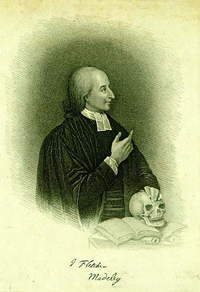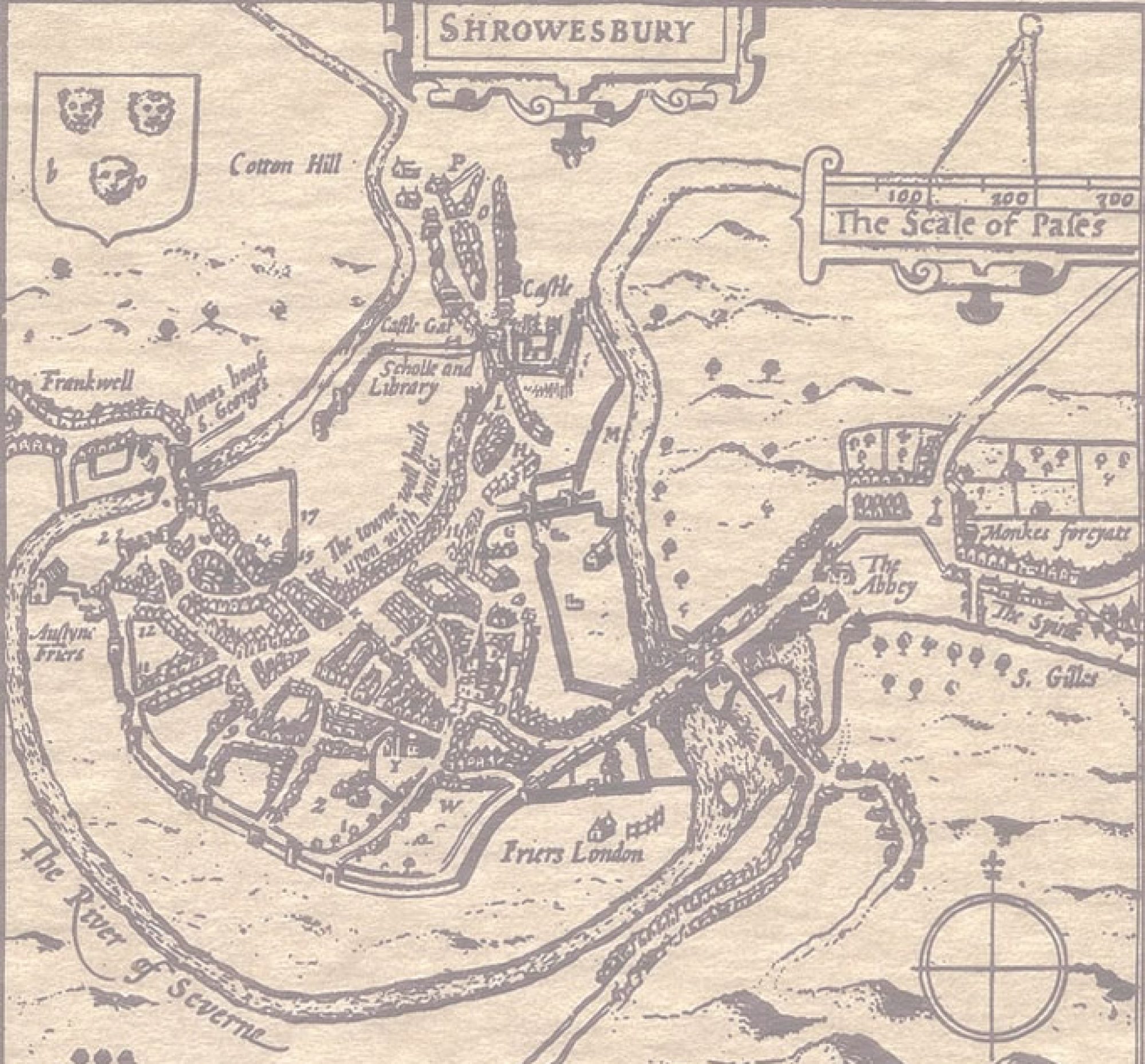This time I would like to introduce you to three men, who, led and empowered by the Holy Spirit, worked hard to build the local church in Shrewsbury.
The Provocation of the Gospel
The first piece reminds us that riots are nothing new! Thomas Taylor of Chester was one of the earliest Methodist preachers in Shrewsbury. In 1764 he came to the town and this is what happened in his own words.
‘I preached on Sunday morning in the Market Place at Salop [Shrewsbury], and met with no other opposition than a few clods of earth and small stones. I gave notice that I would preach again in the evening at a place called the Quarry.
“We will be ready for you,” said the people, and so they were, for when I drew near the place, there was a little army gathered together with clubs. They did not wait till I came to the place, but came on furiously, so that I was soon hemmed in on each side. They seemed a little confused when I demanded to know what they wanted. However, they soon rallied, and though they did not strike me, they kicked me about to some purpose. By degrees, they hurried me into the town, up to the door of a house which belonged to a Justice of the Peace [a magistrate – there was no police force in those days]. I thought there must be something providential in this: I took the liberty of going in to desire his protection. The Justice was at a coffee house, but I sent for him. The mob, by this time, had filled the street, and were roaring like lions. At length the Justice came. He said, “Tell me who has hurt you: I will send for a warrant for them.” And after a little incoherent talk, he fairly shoved me out of the doors into the midst of the mob.
Providence held them from striking, or a very few blows might have ended the business. [By Providence also] I kept to my feet, for if I had once been down there is no likelihood that I should have risen again. I was covered with dirt from head to feet. All the filth they could scrape up was thrown, and when I attempted to turn my face on one side, I met [the filth] on the other. Which way to go I knew not: nor, indeed, could I go any way, but just as my ‘masters’ drove me. At length, I heard one cry out, “For shame, for shame.” This occasioned a quarrel among themselves. Meantime, an honest man opened his door: so I slipped in, and went out by the back door, not much hurt, but dreadfully bedaubed; so that I really needed much washing to be touched.’ [From John Barker, Shrewsbury Free Churches, their History and Romance, p.41, published around 1910]
Labouring for the Gospel
One of the most important of the early Shrewsbury Methodists was John Appleton. This is how his contemporaries remembered him,
‘John Appleton, a native of Shropshire, was apprenticed to a currier [a person who dresses tanned leather]. He went to live in Bristol, where he met with Methodists, which led to his conversion. Returning to Shrewsbury he fitted up a room in his house for preaching, and two weekday evenings at 7pm, after labouring hard at his trade all day, he regularly preached, and twice on Sundays. He had great power in prayer, and his petitions were constantly granted. His countenance [face], as well as his life, testified to the truth of his experience. On Good Friday, 1784, he was taken ill, and retiring to his chapel alone, the Lord manifested himself in such a manner as filled his heart with joy unspeakable. He said that fear of death had been taken away from him many years since.’ [Arminian Magazine, 1790, p.636, quoted in Barker 1910, p.38]
The Shrewsbury Chronicle reported that John Appleton was ‘A man remarkable for his piety and devotedness to God. He was strictly conscientious in all his actions, and his extensive charity to the poor renders his loss very great. By his industry in trade he had acquired a genteel fortune, and lately had built an elegant commodious chapel for the use of the people called Methodists.’ [Shrewsbury Chronicle, 8.5.1784]
Changing the culture

Another very significant local Methodist was John Fletcher (pictured), who became a Methodist while tutoring the sons of Thomas Hill of Attingham. Turning down the offer of an easier parish, he became Vicar of Madeley (now part of Telford) in 1760. Here is a little of what happened,
‘During the first year there [he] knew abject loneliness, and saw very few folk attend the services. However, believing that the Lord would have him to be faithful, even if only one parishioner turned up, he pressed on… Madeley [which Fletcher called ‘this howling wilderness’] was full of profane and ignorant people…drunkenness, orgies, bull-baiting and general immorality. We cannot be surprised therefore, when we read that he suffered many attacks of all kinds… But within two years Madeley had changed perceptively… The Church was packed for worship every Sunday, both morning and evening… [Fletcher’s] prescription for this success appears to have been a mixture of prevailing prayer, personal devotion to Christ, intensive study of the Scriptures, social concern for the flock, and a willing readiness to visit anyone who was in any form of trouble. He had a special corner in his study which he favoured as a place to pray; there he knelt for hours every day – the wall opposite bearing the mark of his agonised petitions.’[Quotations from An Appreciation of John Fletcher, by David R Smith, in Christ Manifested, by John Fletcher, available here]
